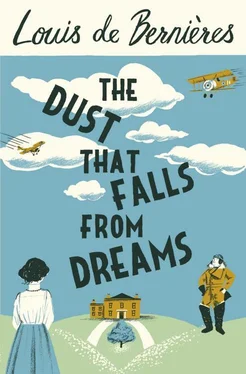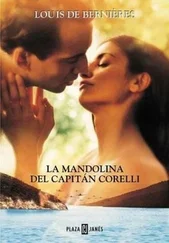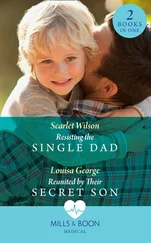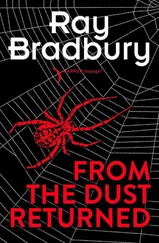‘Ask him anything you like, sir. He’s like a sponge, he is.’
Mr McCosh thought for a second, then asked, ‘What are the smallest bones in your body?’
‘The ones in your ears, sir.’
‘Capital of Egypt?’
‘Cairo, sir.’
‘How many halves are there in thirty?’
‘Sixty, sir.’
‘And if you add three thousand, four hundred and twelve drops of water to forty-two thousand, three hundred and forty-four drops of water, what have you got?’
‘A puddle, sir.’
‘Aha! Very canny! And how far do you think it is from where we are standing to that lime tree over there?’
‘Fifty yards, sir.’
‘Wait here,’ said Mr McCosh. He went round the back of the house and fetched the tape measure from the room under the conservatory. It was the one used for measuring out the tennis markings on the lawn. He handed the reel to the boy, and said, ‘Off you go, laddie.’
Edward walked off towards the lime tree, carrying the end of the tape with him. He touched it to the tree and looked expectantly back at Mr McCosh, who said, ‘Forty-eight and a half. Well done, Edward.’
Mr McCosh looked at Edward’s mother and said, ‘Madam, your boy is going back to school. You will kindly bring me the bills and I will pay them.’
‘Really, sir? Why, sir?’
‘That’s between me and the gatepost,’ replied Mr McCosh. ‘You don’t have to agree, of course, but it would be a waste of a fine young man if you don’t.’
‘It was you who paid the hospital, wasn’t it, sir?’
‘I’ve nae idea. Edward!’
‘Yes, sir?’
‘How would you like to learn to be a caddy? Just when you’re not at school?’
‘I don’t know nothing at all about golf,’ replied Edward.
‘Do you know what you have to do? You carry the bag of clubs and you give advice to the player. You say, “This shot is one hundred and twenty-five yards with the wind against, so I think you should use a mashie.” Or, “Aim this putt six inches to the left of the hole.” Do you think you could do that kind of thing?’
‘I’ll do my best,’ said Edward.
‘I’ll tell you what I’m thinking,’ said Mr McCosh. ‘You get a good long walk carrying a light weight. That’ll strengthen your legs. You get fresh air — good for your health. You get to know many of the ladies and gentlemen around here. Always useful! And caddies often grow wonderfully good at the game. Just about all our club professionals started out as caddies. That’s how Harry Vardon started, caddying for Major Spofforth. Have you heard of Vardon? Six times Open Champion! What a lovely job, being a club professional, eh? Whacking balls, giving lessons, mending and selling clubs, flirting with the ladies. What do you think? You can start off with me. Two and six a round! I’ll teach you everything I know and then you can go solo. How about it?’
Edward was dumbfounded. Two and six a round! You could buy books for that, and marbles, and gobstoppers, and elastic for catapults.
Mr McCosh leaned down and whispered, ‘But you must promise to give two shillings of it to your mother. Understood?’
After Edward and his mother had gone, Hamilton McCosh went into the hallway and looked up at the portrait of his father. The painting was somewhat flat, but the likeness was sufficient. It showed Alexander McCosh in the dignified prime of prosperous middle age, in Scottish evening dress, posing improbably against a backdrop of the St Andrews Clubhouse, leaning on a brassie, and gazing directly at the artist.
‘Well, Father,’ said Hamilton McCosh, ‘I just did for someone else what someone did for Grandpa. What do you think of that, eh?’ He seemed to hear his father’s voice: ‘Well, laddie, always gie back as much you’re gi’en, and ye’ll nae go far aglee.’
He went down to the bottom of the garden and stood in the orchard by Bouncer’s grave, looking back at his magnificent house. What a long way it was from a turf croft.
DANIEL AND ROSIE went to Foyles and came back with several books about Ceylon, taped up in brown paper. In the evenings they sat by the fire and read passages to each other, working themselves up into a state of eager anticipation. It did indeed seem to be an exotic and interesting place, and it was clear that many who went to live there never really wanted to come home again. Daniel and Rosie were struck by how sociologically and religiously complicated the island was, and began to worry that they would never understand it, just as Colonel Bassett had warned.
Rosie and her mother went to Selfridge’s and came back with all sorts of things that eventually turned out to be of no use, or easily available at Rosie’s destination, and Daniel went up to Birmingham to visit Ruston Hornby, the company that had made all the machinery on the estate where they were to live. The company sent out engineers every year, and also on request, and they showed Daniel the detailed plans of everything they had supplied. Obviously, it could be a disaster if any of the machinery failed, but the fact was that it very seldom did. The machines were so vast that they were intrinsically robust, and the Singhalese engineers were, in any case, masters at their vocation. Daniel also called in at Tangye’s, because it was conceivable that one day he might find himself on a plantation which had their machinery.
There was then notification by telegram that the voyage was to be delayed owing to a coal miners’ strike, and so it was that, two weeks later, on the eve of departure, Daniel encountered the Honourable Mary FitzGerald St George in the corridor of the second floor, in the servants’ quarters. Since there were so few servants these days, Daniel had commandeered one of the empty rooms to use as a study when he was en famille , and now he was clearing out all those things that he was either taking with him, or of which he was disposing. He met Mary as she was coming out of her room. Mary cast her eyes down immediately, and Daniel observed her awkwardness. Then she looked up and said, ‘So, Master Daniel, it’s goodbye, is it?’
‘It’s goodbye tomorrow,’ he replied.
‘I shall be very forlorn when you’re gone,’ said Mary.
‘Will you? How sweet of you to say so. I shall certainly miss you. I do hope we meet again.’
‘You have no idea when you’ll be coming back?’
‘None at all, I’m afraid.’
‘I expect I’ll be gone.’
‘I do hope not.’ He looked into her large grey eyes and saw that she was tearful. Her lower lip was working, and she was restraining it with her teeth.
‘I shouldn’t be sad, should I?’ she said. ‘For you it’s a new start.’
‘I’m sorry you’re not coming with us. You’re so good with Esther. I’m sorry that Mrs McCosh won’t let you go.’
‘It’s probably just as well,’ said Mary, looking at him with extraordinary directness and honesty.
‘I think you’re probably right. May I kiss you on the cheek? Not very English, I know, but I think I would feel painfully deprived if we merely shook hands.’
‘You may.’ She offered her right cheek for him to kiss, and he lingered about the business as much as he dared. She smelled of something fresh and subtle, and her cheek was wondrously soft. He kissed the other one.
She held out her hand and took his. ‘We will meet again, you know,’ she said, ‘I am absolutely sure of it. One day there’ll be more time.’
Shortly after this, he encountered Millicent on the way down the stairs, and Daniel made his farewells to her too, giving her a five-pound note ‘just to say thank you’.
‘Thanking you , sir,’ said Millicent. ‘That’s very kind of you, it is. That’s an awful lot, sir.’
Читать дальше












